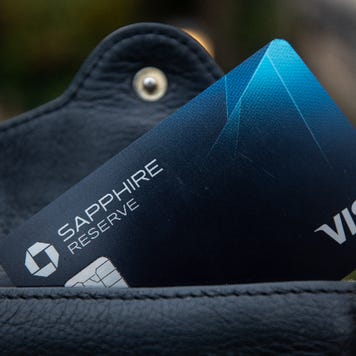Travel Credit Card Advice
Read up on the latest travel credit card advice from the team at Bankrate.
We'll help you navigate all of the travel rewards programs out there and help you pick out a card (or several) that can help you reach your travel goals.
Featured by names you know and trust
The Latest Advice for Travel Credit Cards

Airline companion passes vary, but they can all save you money.

With a good travel credit card, scoring travel upgrades becomes easier.

Alaska Airlines Mileage Plan is one of the top travel loyalty programs.

Learn more about Bank of America travel rewards.

Use these cards to make business purchases without the added fee.

The IHG One Rewards Dine & Earn program is an easy way to earn points faster.

American Express has some hard and fast upgrading rules you should know beforehand.

The Chase Sapphire Reserve card offers benefits and rewards geared toward travelers.

















